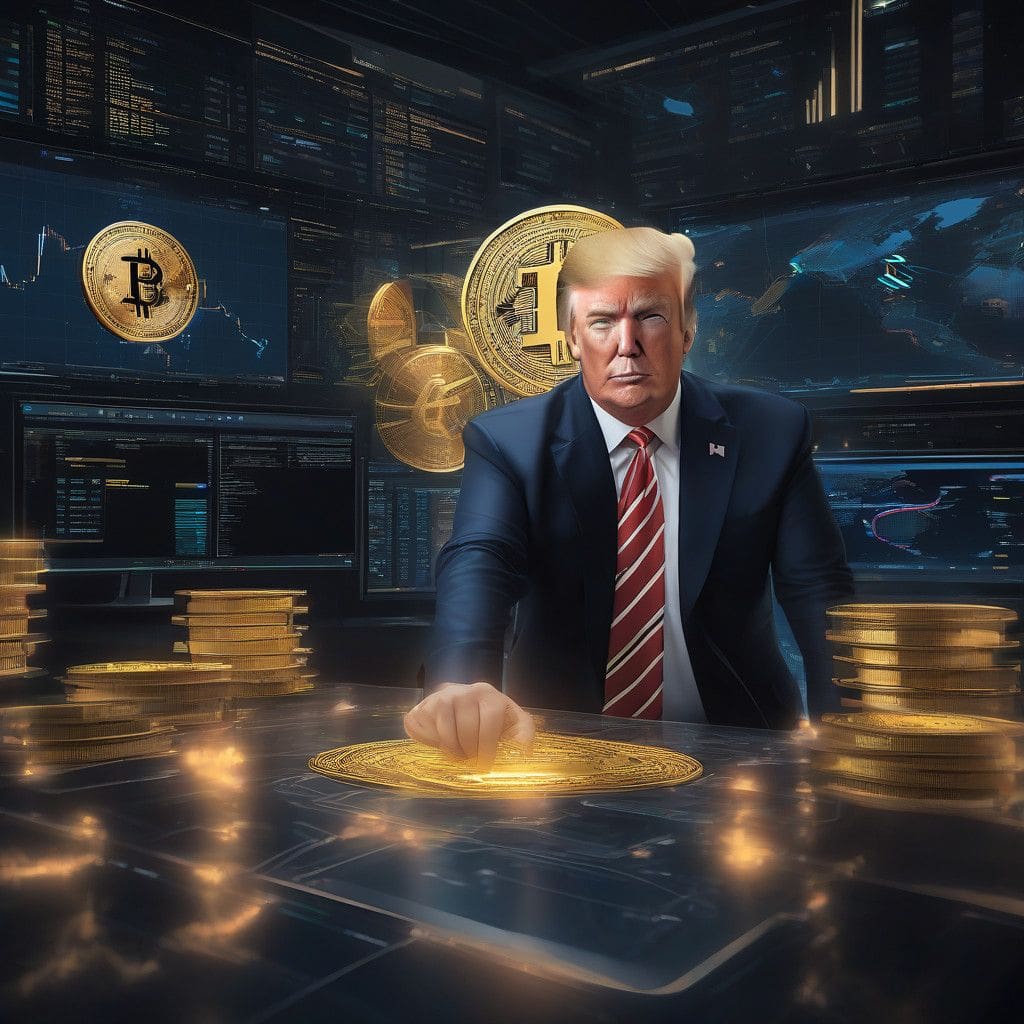In an unexpected twist within the realm of digital finance, former U.S. President Donald Trump has declared the launch of his cryptocurrency project, named World Liberty Financial. Scheduled for go-live on September 16, 2024, this initiative promises innovative features aimed at disrupting traditional banking systems. Led by Trump’s sons, Donald Trump Jr. and Eric Trump, the platform will offer services such as digital wallets, lending capabilities, and the opportunity to invest in various crypto assets.
The fundamental goal behind World Liberty Financial is to facilitate a move towards decentralized finance, often referred to as DeFi. This concept involves creating financial systems that operate without central authorities, allowing for broader accessibility and transparency. Trump’s promotion of this project aligns with his history of advocating for cryptocurrencies, despite past criticisms of the sector.
The announcement was made through a video posted on social media platform X, where Trump expressed his belief that the current banking system is flawed and ripe for disruption. “This project will help Americans take control of their finances and provide a reliable alternative to the traditional banking system,” he mentioned in the video.
One of the standout features of World Liberty Financial is its exploration of stablecoins pegged to the U.S. dollar. Stablecoins are designed to maintain a consistent value, providing a safety net for investors amidst the often-volatile nature of cryptocurrencies. The platform is reportedly in discussions with Aave, a prominent DeFi platform, suggesting the possibility of operating on the Ethereum blockchain to leverage its existing infrastructure and consumer base.
Though the project is generating excitement, it is not without controversy. With Trump’s impending candidacy in the upcoming presidential election, which is just fifty days after the project launch, questions arise regarding his motivations. Critics argue that the timing could be politically motivated, further fueling skepticism surrounding the project’s credibility.
In addition to its ambitious plans, World Liberty Financial has also faced obstacles even before its official debut. Reports indicate that hackers and scammers have attempted to exploit its hype, leading to compromised social media accounts and a deluge of false advertisements. These challenges underscore the ongoing risks associated with cryptocurrency ventures, especially those embarked upon by high-profile figures.
Supporters of Trump’s project believe it can reinvigorate interest in cryptocurrencies, particularly among Trump’s robust base, who may be drawn to the idea of aligning their financial practices with his vision. Additionally, this venture could serve as a catalyst for more mainstream acceptance of cryptocurrencies as legitimate financial tools, especially given the recent surge in interest in digital assets.
Market analysts are keenly observing how this project unfolds, particularly regarding its competitiveness in an already crowded marketplace. The cryptocurrency sector is currently filled with various established players—many offering similar services, such as Binance, Coinbase, and Kraken. World Liberty Financial will need a solid market entry strategy to carve out its niche amidst these giants.
Success in this venture could not only provide significant financial returns for Trump and his family but could also solidify a legacy of innovation in the financial sector. However, failure could have the opposite effect, resulting in considerable reputational damage not only for the Trump family but for the cryptocurrency sector as a whole.
In conclusion, while World Liberty Financial promises to bring revolutionary changes to the way individuals interact with their finances, its success hinges on effective execution amid significant challenges. The project encapsulates the intersection of politics, technology, and finance, making it a focal point of interest for not only crypto enthusiasts but also political pundits as the election draws near.












